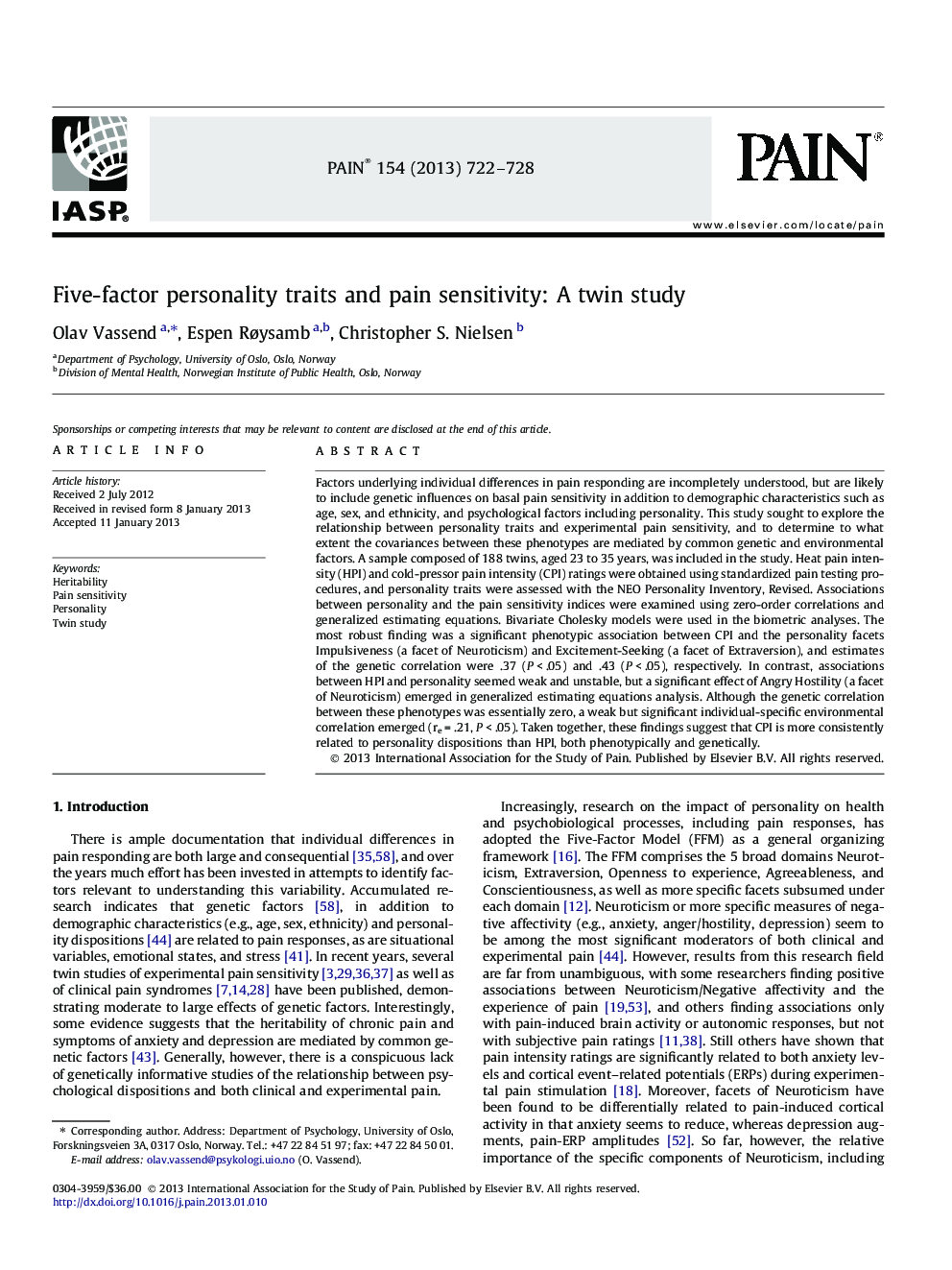| کد مقاله | کد نشریه | سال انتشار | مقاله انگلیسی | نسخه تمام متن |
|---|---|---|---|---|
| 10450652 | 918365 | 2013 | 7 صفحه PDF | دانلود رایگان |
عنوان انگلیسی مقاله ISI
Five-factor personality traits and pain sensitivity: A twin study
ترجمه فارسی عنوان
صفات شخصیت پنج عامل و حساسیت درد: مطالعه دوقلو
دانلود مقاله + سفارش ترجمه
دانلود مقاله ISI انگلیسی
رایگان برای ایرانیان
کلمات کلیدی
وراثت، حساسیت به درد شخصیت، مطالعه دوقلو،
موضوعات مرتبط
علوم زیستی و بیوفناوری
علم عصب شناسی
علوم اعصاب سلولی و مولکولی
چکیده انگلیسی
Factors underlying individual differences in pain responding are incompletely understood, but are likely to include genetic influences on basal pain sensitivity in addition to demographic characteristics such as age, sex, and ethnicity, and psychological factors including personality. This study sought to explore the relationship between personality traits and experimental pain sensitivity, and to determine to what extent the covariances between these phenotypes are mediated by common genetic and environmental factors. A sample composed of 188 twins, aged 23 to 35 years, was included in the study. Heat pain intensity (HPI) and cold-pressor pain intensity (CPI) ratings were obtained using standardized pain testing procedures, and personality traits were assessed with the NEO Personality Inventory, Revised. Associations between personality and the pain sensitivity indices were examined using zero-order correlations and generalized estimating equations. Bivariate Cholesky models were used in the biometric analyses. The most robust finding was a significant phenotypic association between CPI and the personality facets Impulsiveness (a facet of Neuroticism) and Excitement-Seeking (a facet of Extraversion), and estimates of the genetic correlation were .37 (P < .05) and .43 (P < .05), respectively. In contrast, associations between HPI and personality seemed weak and unstable, but a significant effect of Angry Hostility (a facet of Neuroticism) emerged in generalized estimating equations analysis. Although the genetic correlation between these phenotypes was essentially zero, a weak but significant individual-specific environmental correlation emerged (re = .21, P < .05). Taken together, these findings suggest that CPI is more consistently related to personality dispositions than HPI, both phenotypically and genetically.
ناشر
Database: Elsevier - ScienceDirect (ساینس دایرکت)
Journal: PAIN® - Volume 154, Issue 5, May 2013, Pages 722-728
Journal: PAIN® - Volume 154, Issue 5, May 2013, Pages 722-728
نویسندگان
Olav Vassend, Espen Røysamb, Christopher S. Nielsen,
